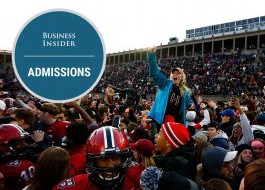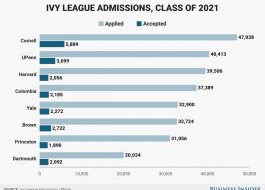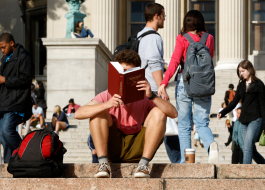
The spring semester of high school is at its midpoint, meaning that anxious seniors throughout the US are waiting for regular-decision college notifications.
For most, this means waiting until 5 p.m. on a given day in late March or early April to learn of college acceptances or rejections. But there is a lesser-known option for a select few: "Likely Letters."
Likely Letters are notifications sent out to a small number of students before the formal decision date. And although they seem to signal that an acceptance is only likely, not certain, if you receive one of them your acceptance is guaranteed, Brian Taylor, director of Ivy Coach, told Business Insider.
"Make no mistake, a Likely Letter means you're getting in," he said. "It means you're among the strongest applicants to the university that year," Taylor, whose New York-based company provides college consulting services, continued.
Likely Letters all use similar language. A Columbia University example a student tweeted out read: "I am delighted to inform you that your application to Columbia University has been carefully evaluated and that you have earned designation as a likely candidate for admission to Columbia College."
Blessed to receive a likely letter from Columbia University. ????????✝️???? #columbia2021 pic.twitter.com/r60OEJ7Hmr
Similarly, a Yale letter read: "It gives me great pleasure to tell you that we have completed a preliminary review of your application and are awarding it a 'likely' rating."
Likely letter came today!! ???????? pic.twitter.com/q72eIpBDmK
— Rodney Thomas (@Rodney_Thomas26) March 3, 2017Students who receive these notifications are sure to be ecstatic to have the assurance of an acceptance. But colleges who send out Likely Letters also do so for their own interests, as they are competing against other schools to land accepted applicants on their campus, according to Taylor.
Schools compete for high yields — the number of admitted students who decide to go to the college — which indirectly impacts their US News & World ranking.
A Likely Letter aims to endear an applicant to that particular school.
The colleges "are going with the primacy effect of social psychology and they want to get those letters to schools first," Taylor said. Students become attached to the school that accepts them first, and hopefully choose to attend.
If you have something to share about your college admissions experience email [email protected]




